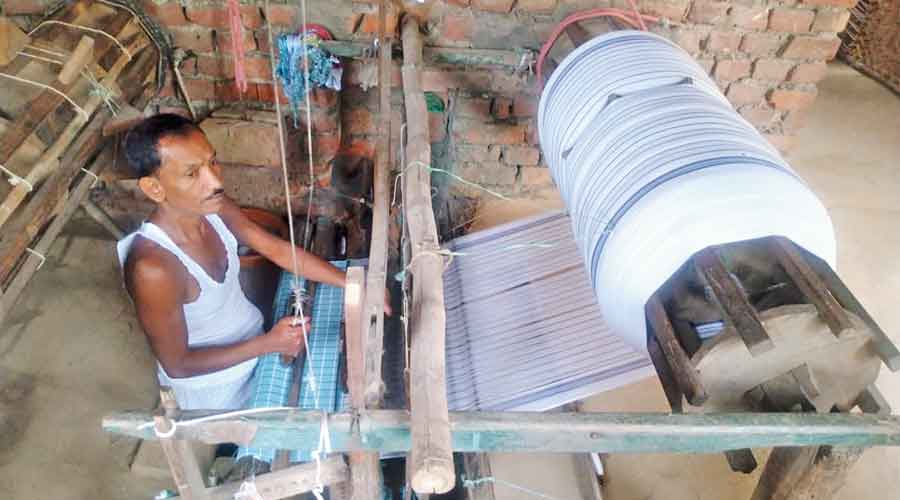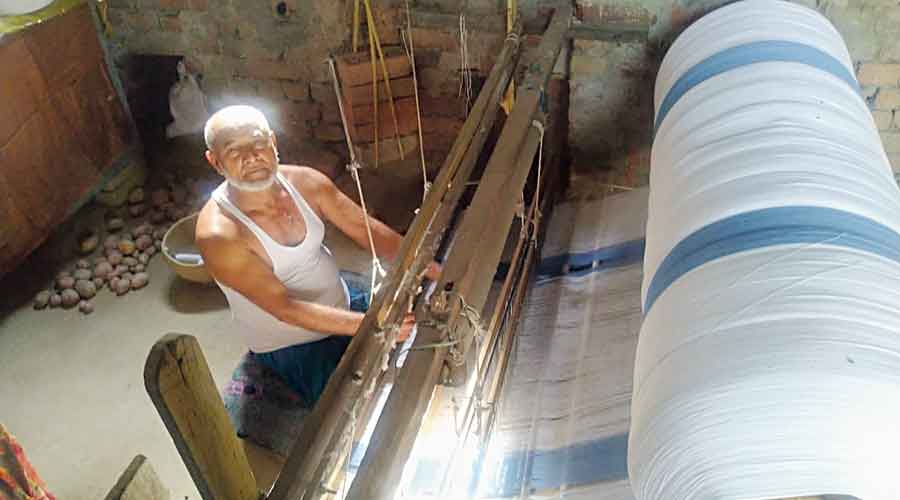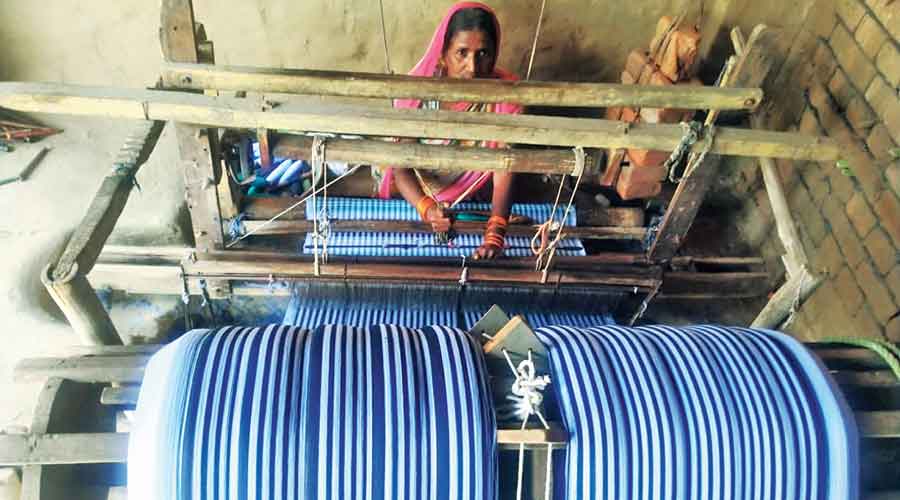Fifty-year-old weaver Faiyaz Ahmad is constantly worried about what the future might have in store for him, his 10 family members and co-workers amid the coronavirus pandemic.
Faiyaz is one of around 15,000 men, women and children who depend on the 650 handlooms at Sikori in Paliganj block of Patna district of Bihar.
It’s been over a year since Covid-19 struck Bihar and the rest of the country. The lockdowns and the “unlocks” followed, but the weaving business did not return to its normal. And now, with the pandemic raging again, things have only worsened.
The lack of the continuous clatter and click-clack of the looms that produce towels, bed sheets, lungis, curtains and shirt material tend to aggravate Faiyaz’s worries.

“The supply of raw material, especially the threads that come from Tamil Nadu, has been adversely affected due to the coronavirus pandemic. The threads have become costlier too. Very few merchants are coming to buy our products. Only a fourth of what we produced was going to the market so we decreased our production. Our livelihood is at stake,” Faiyaz told The Telegraph.
Faiyaz is not the only one facing problems. Over 1 lakh handloom weavers in Bihar are staring at joblessness as the pandemic has led to the lack of raw materials and buyers.
And despite several “on paper” efforts by the central and the state governments for betterment of the weavers, they still remain essentially daily wagers or something around that.
The state has several traditional hubs of handloom production, including Paliganj, Nawada, Biharsharif, Gaya, Banka, Siwan, Madhubani, Bhagalpur and Rohtas. The weavers, both Hindus and Muslims, are facing similar problems and fate.

“Many weavers are leaving the occupation to become labourers, farm workers and construction workers. They don’t want to do so, but how will they survive if they don’t earn. Once the quality of our handloom products was famous in different parts of the country, but now people take pity on our condition,” Vijay Tanti, a weaver of Alinagar in Biharsharif, told this newspaper.
Biharsharif is in Nalanda, the home district of chief minister Nitish Kumar. The weavers of Biharsharif are famous for producing good quality tussar silk and cotton products like bed sheets, towels and dress material.
“The coronavirus pandemic has hurt us in another way as well. The central government has stopped organising the national handloom expos because of the pandemic. Around 10 to 12 such expos were organised every year in different parts of the country. We used to attend these events and achieve good sales,” Vijay added.
Whatever little work is available these days, chiefly includes the weaving of coloured bed sheets for use in government hospitals. The Bihar government has a unique policy of using bed sheets of a different colour on different days of a week.
However, the government has not paid the weavers for the bed sheets they supplied since June last year, and the dues are around Rs 3.5 crore.
In the meantime, the director of handlooms, a post that comes under the state industries department, issued a letter to the Bihar State Handloom Cooperatives Union (BISHCOTEX) asking why the health department did not pay for the bed sheets that were supplied and why the weavers and the union kept supplying them when the dues were mounting.
“The Bihar government should have taken some steps to protect the weavers and their livelihood during the pandemic. It could have prepared their roster and provided some financial help during the crisis. A majority of the weavers are poor and the last one year has broken their back. There is no respite in sight,” BISHCOTEX chairman Naquib Ahmad told this newspaper.
Naquib pointed out that several good schemes initiated by the Nitish-led government for the welfare of the weaving community never took off. These included mandatory purchase of handloom cloth for curtains and dresses for patients in government hospitals.
“Had the government wished, it could have arranged for the marketing of handloom products and maintained a smooth payment cycle. It purchases paddy and wheat from farmers, but does not do anything for weavers. There is no option left for the poor weavers other than to become labourers,” Naquib said.
Even the powerloom weavers and owners in the silk city of Bhagalpur are facing trouble. Silk and linen cloth worth several crores produced by them for merchants of other states are lying at their facilities because they (merchants) have asked them to wait because the demand for such goods is very little because of the pandemic.











